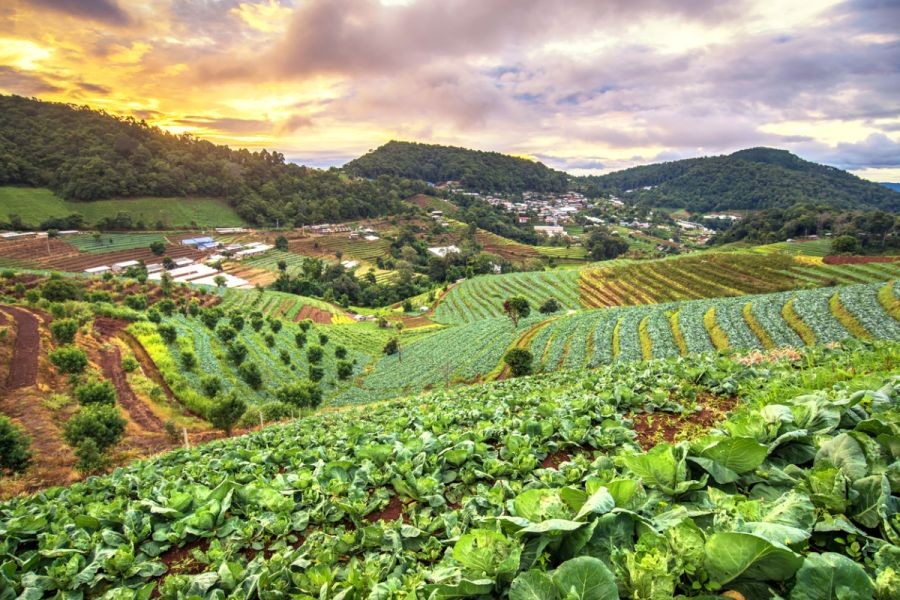New Zealand's lush landscapes and fertile terrains have long been the backbone of its agricultural sector. However, with the increasing demand for sustainable practices, the nation's farming industry is undergoing a transformation. This shift is not just about preserving the environment but also about ensuring economic viability and meeting global consumer expectations. In this article, we delve into the sustainable farming innovations taking root in New Zealand, offering insights for economists and industry stakeholders.
New Zealand's Economic Context: The Catalyst for Change
As global environmental concerns grow, New Zealand's agricultural sector faces both challenges and opportunities. Agriculture contributes significantly to the nation's GDP, with dairy alone accounting for over 7% (Stats NZ, 2023). The government's focus on sustainability is evident through policies like the Zero Carbon Act, driving farmers to adopt innovative practices.
The Role of Technology in Sustainable Farming
Technological advancements are pivotal in this transformation. Precision agriculture, for example, allows farmers to optimize resource use, thereby reducing waste and enhancing yield. A recent study from Massey University revealed that farms utilizing precision technology reported a 30% reduction in water usage and a 20% increase in crop yields. This not only reduces environmental impact but also boosts profitability.
Case Study: Pāmu Farms – Pioneering Sustainable Practices
Problem: Pāmu Farms, one of New Zealand's largest agricultural enterprises, faced rising operational costs and environmental scrutiny.
Action: They implemented a suite of sustainable practices, including livestock monitoring systems and organic farming techniques.
Result: Within two years, Pāmu Farms reduced their carbon footprint by 25% and saw a 15% increase in product demand, proving that sustainability can be economically viable.
Takeaway: The integration of technology and sustainable practices can significantly enhance productivity and market appeal.
Expert Insights: Balancing Sustainability and Profitability
Dr. Sarah Thompson, an agricultural economist at the University of Auckland, emphasizes the importance of balancing environmental goals with economic realities. "While sustainability is crucial, it must align with farmers' financial interests. Innovative solutions that offer cost savings and environmental benefits are key," she states.
Sustainable Farming Myths Debunked
- Myth: Sustainable farming is economically unviable.Reality: Data from the Reserve Bank of NZ shows that farms implementing sustainable practices experience long-term cost savings and increased marketability.
- Myth: Organic farming yields are significantly lower.Reality: Recent research indicates that with proper technology, organic farms in New Zealand can achieve yields comparable to conventional methods.
- Myth: Consumers are unwilling to pay for sustainable products.Reality: Market trends show a growing consumer preference for sustainably produced goods, often commanding premium prices.
Pros and Cons of Sustainable Farming Innovations
Pros:
- Environmental Benefits: Reduces carbon footprint and conserves natural resources.
- Market Demand: Increasing consumer preference for sustainable products can enhance revenue.
- Regulatory Compliance: Aligns with evolving government policies and regulations.
Cons:
- Initial Costs: Implementing sustainable practices can require significant upfront investment.
- Knowledge Gap: Farmers need training and education to adopt new technologies effectively.
- Market Fluctuations: Sustainability trends can be volatile, impacting demand.
Future Trends: The Road Ahead for New Zealand's Agriculture
The future of New Zealand's agriculture is promising, with projections indicating a 50% increase in the adoption of sustainable practices by 2030 (Deloitte NZ, 2023). Innovations such as carbon-neutral farming and regenerative agriculture are expected to gain traction, driven by both policy incentives and market demand.
Conclusion: Embracing a Sustainable Future
As New Zealand's agricultural sector evolves, the integration of sustainable practices is not just an environmental necessity but an economic opportunity. By embracing these innovations, farmers can enhance productivity, meet regulatory requirements, and cater to the growing demand for eco-friendly products. The journey towards sustainability is challenging but offers a pathway to long-term viability and prosperity.
What are your thoughts on sustainable farming innovations? Share your insights and experiences in the comments below!
People Also Ask
How does sustainable farming impact New Zealand's economy?By adopting sustainable farming practices, New Zealand can enhance its agricultural productivity and market competitiveness, leading to increased GDP contributions from the sector.
What are the biggest misconceptions about sustainable farming?A common myth is that sustainable farming is economically unviable. However, research shows that it can lead to cost savings and increased market demand.
Who benefits the most from sustainable farming practices?Sustainable farming benefits farmers, consumers, and the environment, fostering a healthier ecosystem and robust economy.
Related Search Queries
- Sustainable agriculture in New Zealand
- Technological innovations in NZ farming
- Zero Carbon Act impacts on agriculture
- New Zealand organic farming trends
- Regenerative agriculture methods in NZ
- New Zealand dairy industry sustainability
- Precision farming technologies in NZ
- Environmental policies in New Zealand agriculture


































IsabellaPa
10 months ago